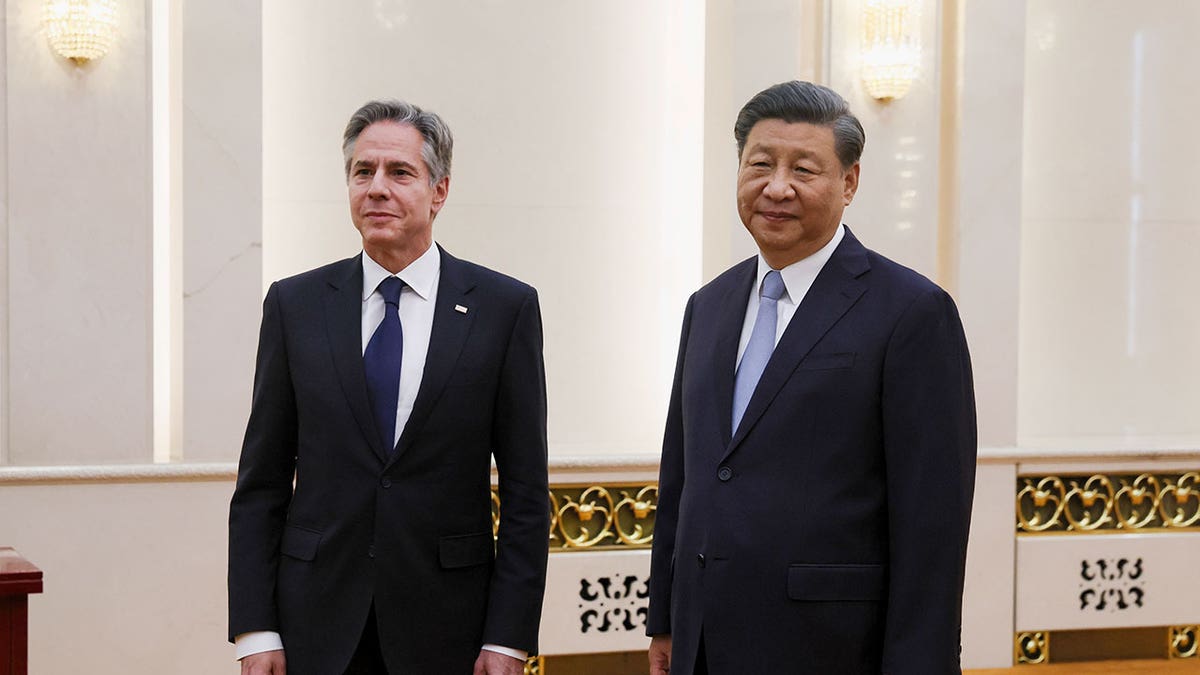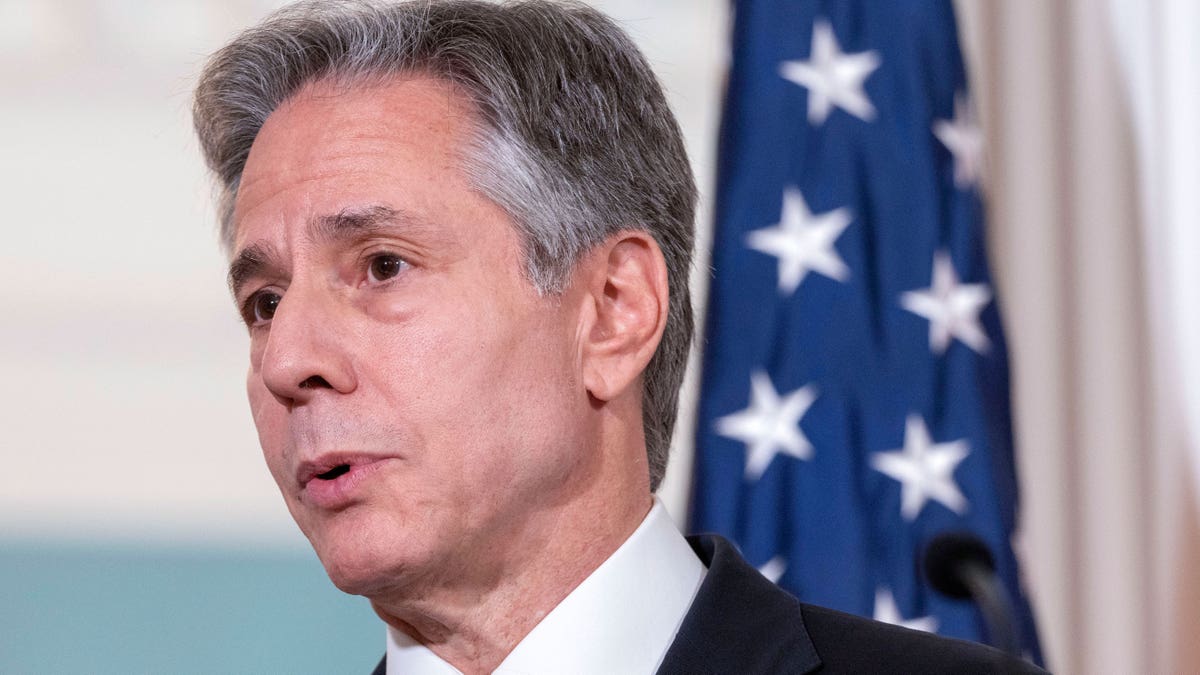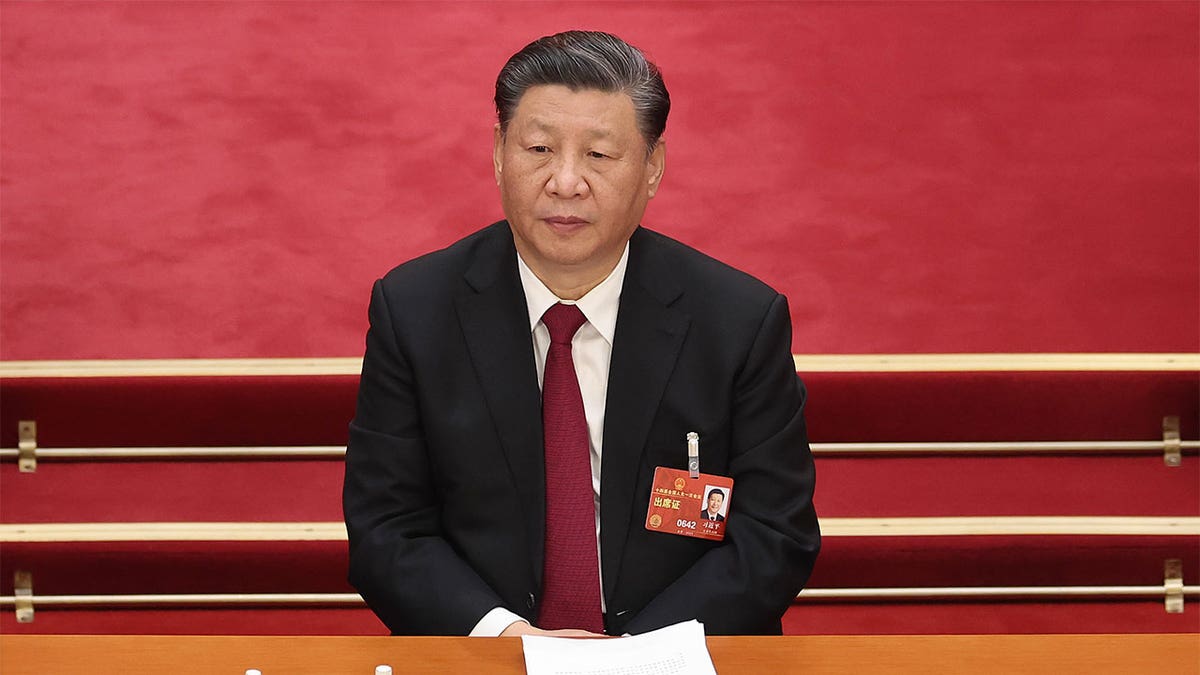Rep. Mike Gallagher explains risk of renewed engagement with China
Wisconsin Rep. Mike Gallagher joins Fox & Friends to discuss Secretary Blinkens surprise high-stakes meeting with President Xi Jinping.
Secretary of State Antony Blinken reiterated U.S. support of the "One China" policy on Monday, saying that the U.S. does not support Taiwanese independence following a meeting with Chinese President Xi Jinping.
"We do not support Taiwan independence," Blinken said in a press conference on Monday. "We remain opposed to any unilateral changes to the status quo by either side. We continue to expect the peaceful resolution of cross strait differences. We remain committed to continuing our responsibilities under the Taiwan Relations Act including making sure Taiwan has the ability to defend itself."
"At the same time, we and many others have deep concerns about some of the provocative actions that China has taken in recent years going back to 2016," Blinken added. "And the reason that this is a concern for so many countries, not just the United States, is that were there to be a crisis over Taiwan, the likelihood is that could produce an economic crisis that could affect quite literally the entire world."
"Fifty percent of commercial container traffic goes through the Taiwan Strait every day. Seventy percent of semiconductors are manufactured in Taiwan. If as a result of a crisis that was taken offline, it would have dramatic consequences for virtually every country around the world," he added.
AMERICANS IN TAIWAN MOSTLY UNFAZED BY US EVACUATION PLAN REPORT

Chinese President Xi Jinping, right, and U.S. Secretary of State Antony Blinken pose for photographers in Beijing Monday June 19, 2023. (AP)
Blinken’s comment comes amid increased tensions between China and the United States related to Taiwan. Last week, Taiwan's air force scrambled fighter jets after a group of 10 Chinese aircraft crossed the median line of the Taiwan Strait for the second time in a matter of days.
This month, the U.S. military released video of a close encounter between a Chinese navy ship and an American destroyer in the Taiwan Strait, and there have been several close calls between Chinese and U.S. military aircraft recently, including an air intercept by a Chinese fighter jet over the South China Sea in late May.
China considers self-ruling Taiwan its own territory and has raised the prospect of annexing it by force. The U.S. maintains informal relations and defense ties with Taiwan even as it recognizes Beijing as the government of China.
BIDEN CLAIMS SPY BALLOON WAS 'MORE EMBARRASSING' FOR CHINA, SUGGESTS IT WASN'T 'INTENTIONAL'

Secretary of State Antony Blinken speaks during a news conference with Singapore's Foreign Minister Vivian Balakrishnan at the State Department, Friday, June 16, 2023, in Washington. (AP Photo/Jacquelyn Martin)
"We have no illusions about the challenges of this relationship. There are many issues on which we profoundly and even vehemently disagree," Blinken added. "The United States has a long history of successfully managing complicated relationships through diplomacy."
Blinken told reporters that the relationship between China and the U.S. took a "positive step" during his trip over the last two days and said his counterpart, Chinese Foreign Minister Qin Gang, agreed to visit Washington D.C., in the future at a "suitable time."
CLICK HERE TO GET THE FOX NEWS APP
Blinken acknowledged that China did not agree to set up a crisis military-to-military communications channel which had been one of the goals of the U.S. heading into the meeting.

Chinese President Xi Jinping discussing the country's economic and social development at a political gathering in Beijing. (Lintao Zhang/Getty Images)
Over the last year, the U.S. and China saw more than $700 billion in trade which according to Blinken constituted the highest level between the two countries on record. He reiterated U.S. Treasury Secretary Janet Yellen's testimony before Congress last week that it would be "disastrous" for the U.S. to decouple and stop all trade and investment with China.
BIDEN ADMIN CONFIRMS CHINA SPY BASE EFFORTS IN CUBA, CALLS IT ‘ONGOING ISSUE'
"We are for de-risking and diversifying. That means investing in our own capacities and in secure, resilient supply chains, pushing for level playing fields for our workers in our companies. Defending against harmful trade practices and protecting our critical technologies so that they aren't used against us. I made clear that we'll continue to take targeted actions that are necessary to protect U.S. national security," Blinken said.
Fox News' Danielle Wallace contributed to this report






















